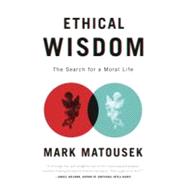
Note: Supplemental materials are not guaranteed with Rental or Used book purchases.
Purchase Benefits
What is included with this book?
Mark Matousek is the author of two bestselling memoirs, Sex Death Enlightenment and The Boy He Left Behind. A contributing editor for O, The Oprah Magazine, he was a senior editor at Interview and has written for numerous publications, including The New Yorker, the New York Times Magazine, Harper's Bazaar, Details, and AARP magazine. Matousek lives in New York City.
The New copy of this book will include any supplemental materials advertised. Please check the title of the book to determine if it should include any access cards, study guides, lab manuals, CDs, etc.
The Used, Rental and eBook copies of this book are not guaranteed to include any supplemental materials. Typically, only the book itself is included. This is true even if the title states it includes any access cards, study guides, lab manuals, CDs, etc.